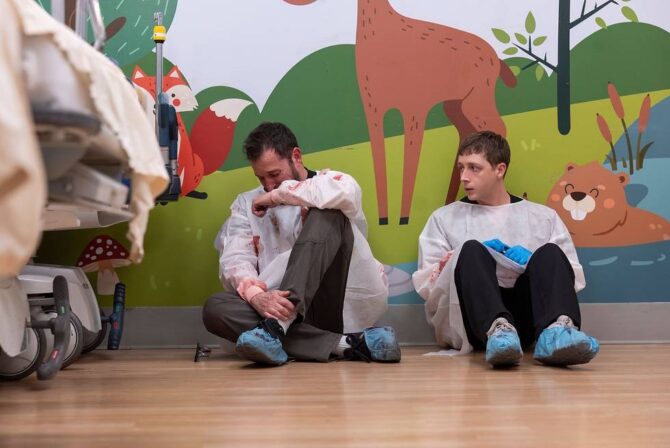Lifetime TV will be airing their remake of the classic weepie “Beaches” on January 21, 2017.
I won’t be watching it.
Partially in protest against Hollywood’s preference for reruns over developing new material. Partially because I think recasting the WASP-y Roberta (from the book)/Hillary (from the movie) with African-American Nia Long, both changes the basic premise about who’s on the inside versus who’s on the outside in American society, and makes Jewish CC’s (Idina Menzel)—spoiler alert!—adoption of her best friend’s child at the end more nuanced and complicated.
But mostly, it will be because of my own complicated history with the original movie, starring Bette Midler and Barbara Hershey.
When I was in high school, I had a best friend. It was a friendship as complicated and dramatic and tempestuous as any friendship between teenage girls. And “Beaches” was our movie. We saw it together in the theater. We saw it together on video. We watched it together over the phone when we went away to college and ultimately ended up living in different cities. We saw Bette Midler in concert together. We quoted it when we were fighting to describe how we were feeling and as short-hand for apologizing and making up. We were from different ethnic and religious (though both immigrant) backgrounds. The movie spoke to us. It got us.
And I thought that, no matter what, we got each other.
Until late 1998, when I introduced my best friend to the man I would eventually marry.
And then I never heard from her again.
She stopped returning phone calls. She stopped answering emails. She ghosted me before that was a thing.
I have no idea why. After my initial concern that something had happened to her—but I could still hear her voice on her answering machine, and her LinkedIn profile was being updated, and mutual friends of ours reassured me she was still alive—I started to wonder what the hell had happened.
I still don’t know.
I thought I was the only one. But, apparently, it’s such a common phenomenon there’s even a book to help women deal, “Best Friends Forever: Surviving a Break Up With Your Best Friend.” And Oprah talked about it!
Initially, I wondered if she’d disapproved of my husband (my husband is African American, and she had mentioned in the past that she thought interracial marriages were bad for kids). I wondered if she thought I would be dumping her now, and so made the first move. I wondered if her more conservative parents’ ongoing disapproval of my lifestyle choices—choosing an “artistic” over a “practical” career, encouraging her to pursue her own dreams over theirs, moving across the country on my own and thus setting a bad example—had finally become impossible, or simply no longer worth it, to resist.
I soul-searched my own role in the break up. Yes, I could be self-centered; yes, I could be needy; yes, I could be arrogant and controlling. But was it to above average levels? A little feedback would have been nice. An exit interview, maybe? (I tell my husband it’s a real shame, I’m a lot better now, but she who dealt with the worst of it doesn’t get to reap the benefits of my self-improvement!)
It’s been almost 20 years (I know, because I can time it to my wedding anniversary), and I still periodically try to reach out. For our 20th high school reunion, the organizers set up a social media site (anyone remember Ning?). I sent out a bunch of friend requests to people I was friends with back then. Anyone want to guess who was the only person who didn’t accept it?
It’s one thing to gradually drift away. To lose what had been a valuable friendship as a result of distance, or family commitments, or a concrete disagreement. But this wasn’t that. This was a deliberate and cold decapitation. (Ironically enough, a line in the original “Beaches” goes, “You took away your friendship without even discussing it with me!” It’s not presented as a good thing.) If it had been a case of just accidentally losing touch, why ignore a harmless friend request, or an email mention that the prime-time soap opera we once watched obsessively was finally out on DVD?
At this point, my curiosity over “why?” probably trumps anything I could learn. Hell, odds are, she doesn’t even remember why.
But it still gnaws at me. Mostly because things still come up in my life, the references to which she’d be the only one to get. (See the aforementioned prime-time soap opera, as well as dozens of other things that made up my late 1980s teenage years. Who else am I going to talk to them about?)
And that’s the main reason I am not going to watch the “Beaches” remake. Because the only person who’d understand the multiple levels of my snarky comments won’t be there to watch it with me.
Read More:
4 Things You Should Do When Your Friend Loses a Spouse
Sheryl Sandberg Admits She Got It Wrong with ‘Lean In’
My Jewishness Is Not Defined by My Faith in God, But This Instead







